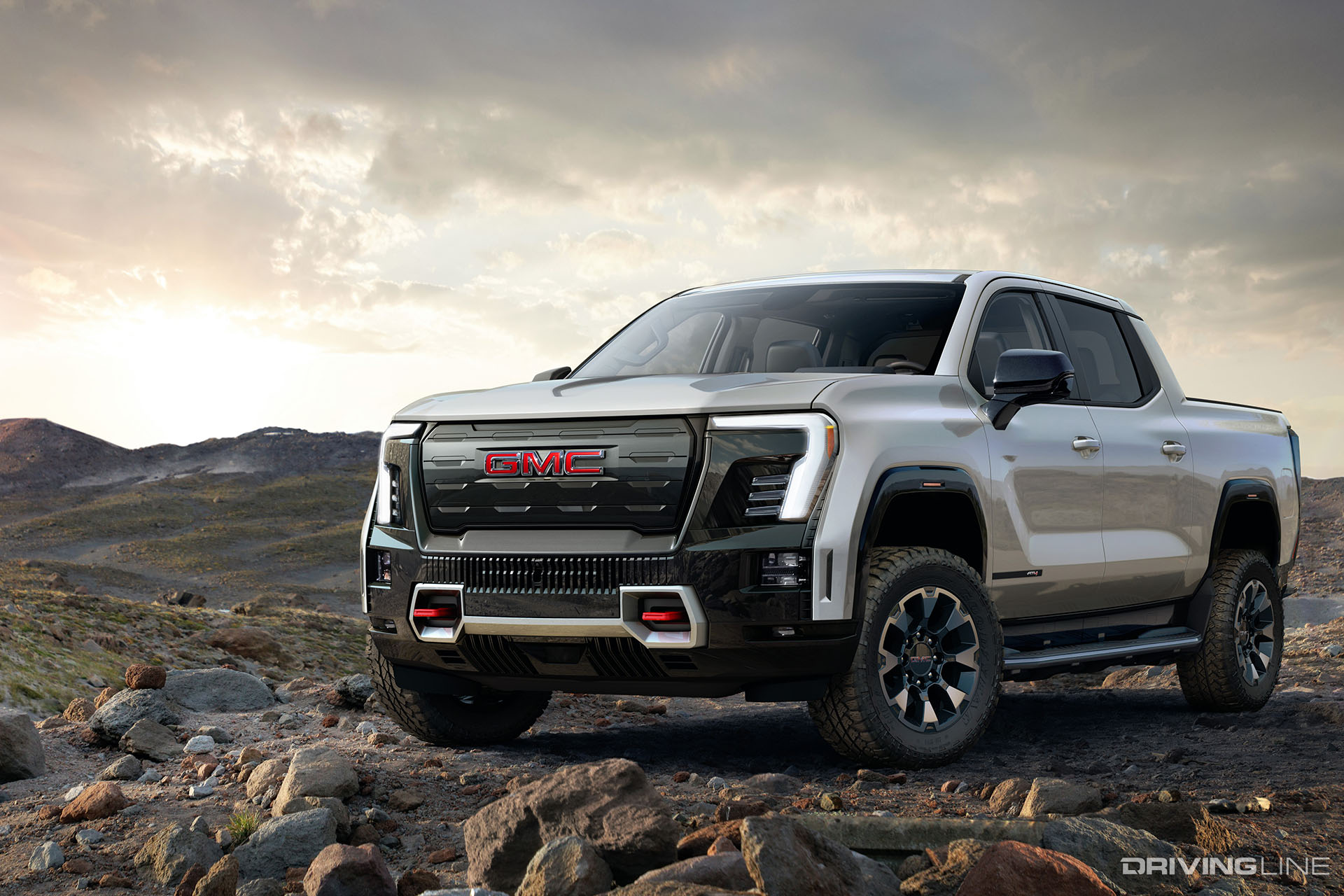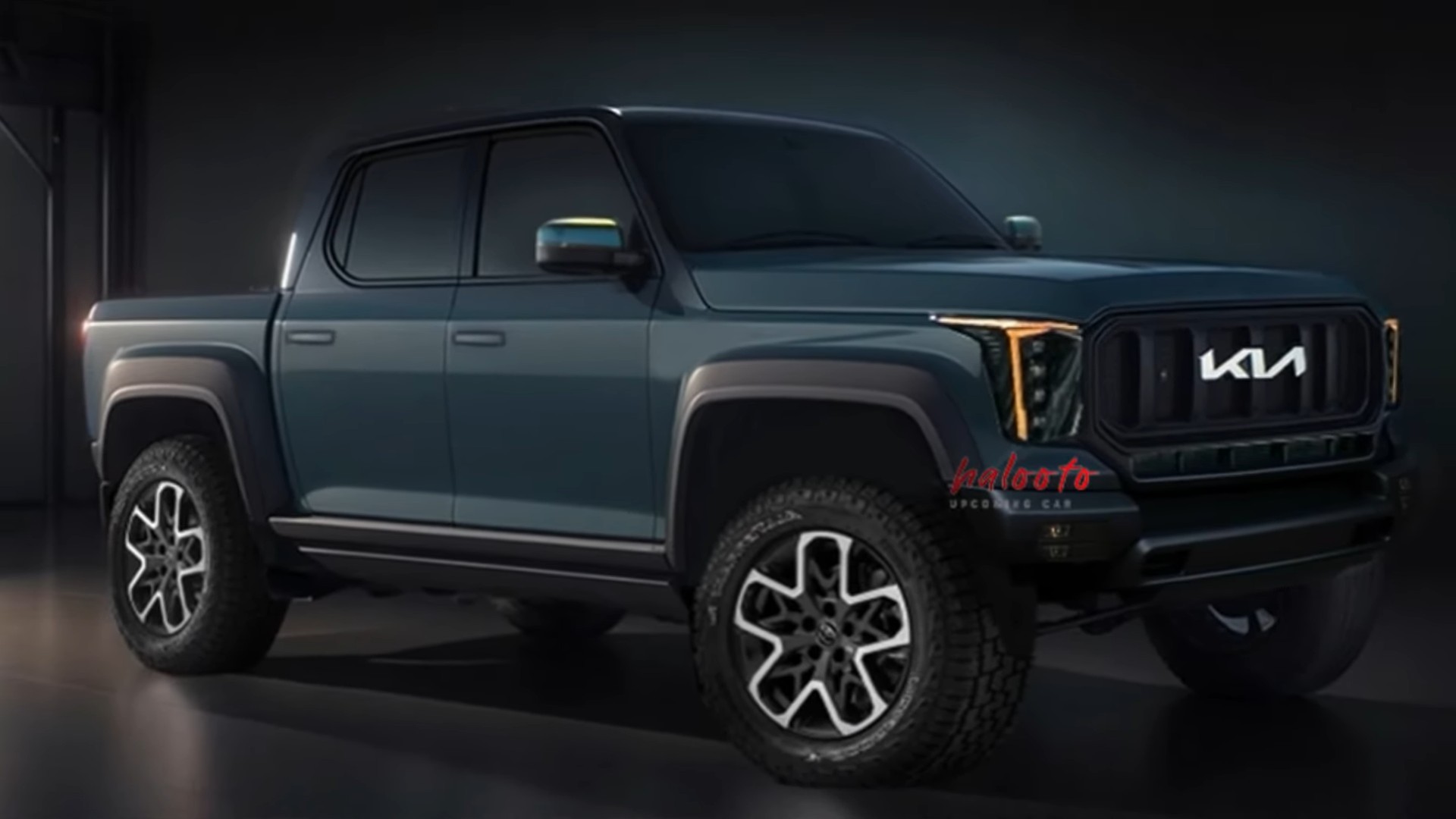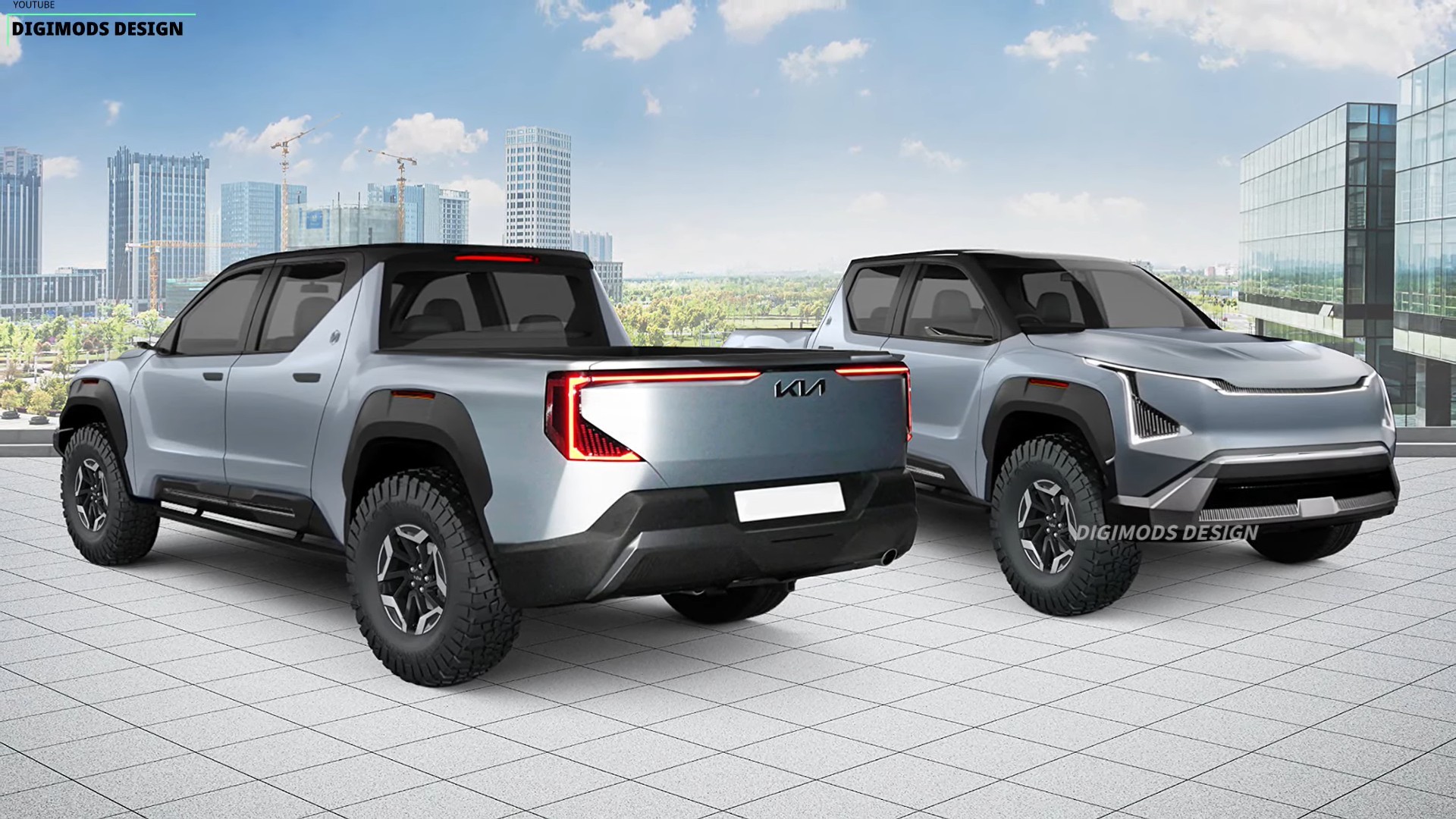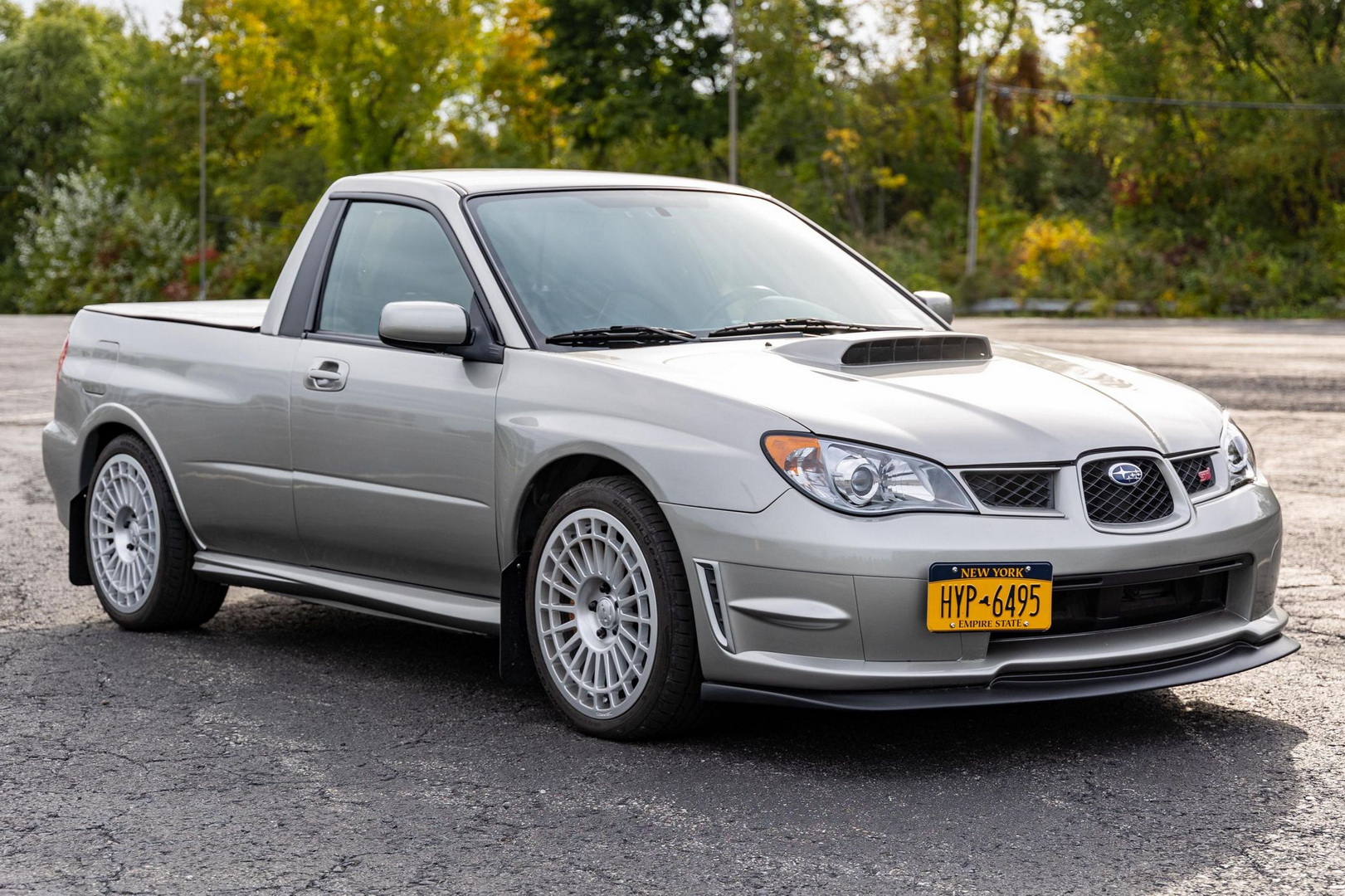Pickup Trucks Dealers: Your Comprehensive Guide to Navigating the Automotive Landscape pickup.truckstrend.com
Introduction: The Gateway to Your Next Truck
In the vast and varied automotive market, pickup trucks hold a unique and cherished position. From their rugged utility for work and hauling to their growing popularity as versatile family vehicles and adventurous off-roaders, pickups cater to an incredibly diverse clientele. At the heart of connecting these powerful machines with their eager owners are Pickup Trucks Dealers. These establishments are more than just showrooms; they are multifaceted hubs that facilitate the entire truck ownership journey, from initial selection and purchase to financing, maintenance, and long-term service.
Pickup Trucks Dealers: Your Comprehensive Guide to Navigating the Automotive Landscape
Understanding the role and operations of pickup truck dealers is crucial for anyone considering a truck purchase. They represent a primary interface between manufacturers and consumers, offering not just vehicles, but also a suite of services, expertise, and support that shape the buying experience. This comprehensive guide will delve into the world of pickup truck dealerships, exploring their various forms, the services they provide, the typical buying process, key advantages, potential challenges, and practical advice to empower you in your next truck acquisition.
Types of Pickup Truck Dealerships
The landscape of pickup truck dealers is diverse, each type offering a distinct experience and selection. Understanding these differences is the first step in deciding where to begin your search.
- Franchise Dealerships (New & Used): These are the most common and recognizable types of dealerships. They are authorized by specific truck manufacturers (e.g., Ford, Chevrolet, Ram, Toyota, GMC, Nissan, Honda) to sell their brand-new vehicles. Franchise dealerships also typically offer a selection of pre-owned trucks, including Certified Pre-Owned (CPO) vehicles that come with manufacturer-backed warranties and rigorous inspections.
- Pros: Access to the latest models, manufacturer warranties, factory-trained technicians, genuine OEM parts, CPO programs, established reputation.
- Cons: Often higher prices for new vehicles, less flexibility in pricing, potential for sales pressure.

- Independent Used Truck Dealerships: These dealerships specialize exclusively in pre-owned vehicles and are not affiliated with a specific manufacturer. They can offer a wider variety of makes, models, and years, often at potentially more competitive prices than franchise dealers for comparable used trucks.
- Pros: Potentially lower prices, wider selection across brands, more negotiation room, often cater to specific niches (e.g., lifted trucks, classic trucks).
- Cons: Varying quality of vehicles, no manufacturer warranty on used vehicles (though third-party warranties may be offered), service quality can vary, less standardized reconditioning processes.

- Online Platforms with Dealership Partnerships: The digital age has also transformed truck sales. Many online platforms (e.g., Carvana, Vroom, CarGurus, Autotrader) now facilitate the buying and selling of trucks, often partnering with traditional dealerships. While the final purchase might still go through a physical dealer, the initial search, comparison, and even financing application can be done entirely online.
- Pros: Convenience, vast inventory, often transparent pricing, home delivery options.
- Cons: Inability to physically inspect the vehicle or test drive before commitment (though return policies exist), less personal interaction.

The Comprehensive Services Offered by Dealers
Pickup truck dealers are full-service establishments designed to support the entire vehicle ownership lifecycle. Their offerings extend far beyond just selling trucks.
- Vehicle Sales: This is their core function, encompassing the sale of new trucks, certified pre-owned trucks, and other used vehicles. They guide customers through model variations, trim levels, features, and available options.
- Financing & Leasing: Most dealerships have a finance department that helps customers secure auto loans or lease agreements. They work with a network of banks and lenders, as well as offering in-house financing options, to find competitive rates and terms.
- Trade-Ins: Dealers provide a convenient way to sell your old vehicle by offering a trade-in value, which can be applied directly to the purchase of a new truck, reducing the overall out-of-pocket cost and simplifying the sales tax calculation in many states.
- Service & Maintenance: A cornerstone of franchise dealerships, the service department employs factory-trained technicians who specialize in the specific make and model of trucks they sell. They handle routine maintenance (oil changes, tire rotations), major repairs, warranty work, and recall services using genuine parts.
- Parts & Accessories: Dealerships maintain a parts department that stocks original equipment manufacturer (OEM) parts, ensuring compatibility and quality for repairs. They also often sell and install official accessories, from bed liners and tonneau covers to lift kits and custom wheels.
- Extended Warranties & Protection Plans: To offer additional peace of mind beyond the factory warranty, dealers often present various extended service plans, vehicle protection packages (e.g., paint protection, tire and wheel coverage), and GAP insurance.
The Pickup Truck Buying Journey at a Dealership
Navigating the purchase process at a dealership can be daunting without preparation. Here’s a typical journey:
- Initial Research & Budgeting: Before setting foot in a dealership, determine your needs (towing, hauling, off-roading, daily driving), research specific truck models, understand their features, read reviews, and establish a firm budget, including insurance, fuel, and maintenance costs. Get an estimate of your current vehicle’s trade-in value.
- Visiting the Dealership & Salesperson Interaction: Upon arrival, you’ll typically be greeted by a salesperson. Clearly articulate your needs and budget. They will guide you through their inventory, answering questions about specific models.
- Test Drives: This is a critical step. Drive the truck in conditions similar to your typical usage. Pay attention to acceleration, braking, steering, visibility, comfort, and noise levels. Test multiple models if you’re undecided.
- Negotiation: Once you’ve chosen a truck, the negotiation phase begins. This involves discussing the truck’s price, your trade-in value, and any additional fees or products. Be prepared to haggle and stand firm on your budget.
- Financing & Paperwork: If you’re financing, you’ll work with the finance manager. Review all loan terms, interest rates, and the total cost. Carefully read the purchase agreement, ensuring all agreed-upon terms are accurately reflected before signing.
- Delivery: After all paperwork is complete, the truck is yours. The salesperson will typically walk you through the truck’s features, controls, and technology before you drive off.
Advantages of Purchasing from a Pickup Truck Dealer
While alternatives exist, buying from a reputable pickup truck dealer offers several compelling benefits:
- Extensive Selection: Dealerships, especially franchise ones, offer a wide array of new models, trims, colors, and configurations, allowing you to find the exact truck that fits your specifications.
- Warranties & CPO Programs: New trucks come with manufacturer warranties, and Certified Pre-Owned programs provide peace of mind for used vehicle purchases, backed by the brand.
- Professional Expertise: Sales staff are knowledgeable about their specific truck lines, and service technicians are factory-trained, ensuring expert advice and repairs.
- Financing Convenience: Dealers streamline the financing process, often securing competitive rates through their network of lenders, making it a one-stop shop.
- Trade-In Simplicity: Trading in your old vehicle at a dealership is far simpler than selling it privately, saving you time and hassle.
- After-Sales Support: Dealers provide ongoing support through their service departments, parts availability, and assistance with recall notifications or warranty claims.
Navigating Challenges and Important Considerations
Despite the advantages, buyers should be aware of potential challenges when dealing with pickup truck dealers:
- Sales Pressure: Dealerships are businesses, and salespeople work on commission. Be prepared for persuasive tactics and focus on your needs, not theirs.
- Pricing Transparency & Hidden Fees: The advertised price isn’t always the final price. Watch out for "dealer fees," "documentation fees," "preparation fees," and other add-ons that can inflate the cost. Always ask for an "out-the-door" price.
- Negotiation Skills: Dealers expect you to negotiate. Lack of preparation can lead to paying more than necessary. Research market prices for the truck you want.
- Add-Ons and Upsells: Be critical of extended warranties, paint protection, fabric protection, and other extras. While some may be valuable, others might be overpriced or unnecessary for your needs.
- Pre-Purchase Inspection (for Used): For used trucks, especially from independent dealers, consider investing in an independent pre-purchase inspection by a trusted mechanic. This can uncover hidden issues not apparent during a test drive.
- Understanding Contracts: Never sign anything you haven’t thoroughly read and understood. Ask questions about anything unclear.
Practical Tips for a Successful Dealership Experience
Empower yourself with these actionable insights for a smooth and successful truck purchase:
- Do Your Homework: Research specific models, features, trim levels, and typical market prices before you visit. Knowledge is power.
- Know Your Budget (and Stick to It): Factor in the purchase price, taxes, fees, insurance, and ongoing running costs. Don’t let emotion push you beyond your financial comfort zone.
- Get Pre-Approved for a Loan: Secure financing from your bank or credit union before going to the dealership. This gives you leverage in negotiations and a benchmark for dealer-offered rates.
- Be Prepared to Walk Away: If you feel pressured, the deal isn’t right, or the numbers don’t add up, don’t be afraid to leave. There are always other trucks and other dealers.
- Bring a Companion: A trusted friend or family member can offer an objective perspective, spot things you might miss, and act as a moral support.
- Test Drive Thoroughly: Don’t just drive around the block. Take it on highways, city streets, and even rougher terrain if you plan to go off-road. Test all features.
- Ask Plenty of Questions: About the truck, its history (for used), warranties, service intervals, and every line item on the sales contract.
- Get Everything in Writing: Any promises, special terms, or agreements made verbally must be included in the final written contract.
Price Table: Common Costs & Considerations at Pickup Truck Dealers
It’s important to note that "Pickup Trucks Dealers" itself is not a product with a single price. Instead, this table illustrates typical costs and price considerations you will encounter when purchasing a truck and utilizing services from a dealership. Prices are estimates and vary widely based on location, truck condition, brand, and market demand.
| Category | Description | Estimated Cost / Range (USD) |
|---|---|---|
| New Truck Price | Manufacturer’s Suggested Retail Price (MSRP) for various truck types. Does not include destination fees, taxes, or dealer add-ons. | Compact/Mid-size: $25,000 – $45,000+ (e.g., Ford Maverick, Hyundai Santa Cruz, Toyota Tacoma, Chevy Colorado) Full-size: $35,000 – $75,000+ (e.g., Ford F-150, Ram 1500, Chevy Silverado 1500) Heavy Duty (HD): $45,000 – $90,000+ (e.g., Ford F-250, Ram 2500, Chevy Silverado 2500HD) |
| Used Truck Price | Varies significantly based on make, model, year, mileage, condition, and trim level. | 5-10 years old: $15,000 – $40,000+ Under 5 years old: $25,000 – $60,000+ |
| Certified Pre-Owned (CPO) | Used trucks that meet manufacturer’s strict criteria, often with extended warranties. Typically 10-20% higher than non-CPO used. | Varies: Often starts from $30,000 for mid-size, up to $70,000+ for full-size. |
| Dealer Fees | Non-negotiable administrative fees charged by the dealership. Can include documentation fees, tag & title fees, advertising fees, etc. (Varies by state law). | Documentation Fee: $100 – $1,000+ (State-regulated in many areas) Destination/Freight Charge: (For new trucks) $1,500 – $2,000+ (Manufacturer-set, not negotiable) |
| Sales Tax | Percentage of the purchase price, varies by state and locality. | Varies: 0% – 10%+ (e.g., 6% of the truck’s price) |
| Registration & Tags | Fees paid to the state for vehicle registration and license plates. | Varies: $50 – $500+ annually, depending on state and vehicle type. |
| Financing Costs | Interest paid on the loan. Depends on credit score, loan term, and prevailing interest rates. | Interest Rate: 0% – 15%+ APR (e.g., a $40,000 loan at 5% over 60 months results in approx. $5,260 in interest). |
| Extended Warranties | Optional service contracts offering coverage beyond the manufacturer’s basic warranty. Varies based on duration, mileage, and coverage level. | $1,500 – $4,000+ (Can sometimes be negotiated or financed into the loan) |
| Service Packages | Pre-paid maintenance plans offered by the dealer for routine services (oil changes, tire rotations). | $500 – $1,500+ (Often for 2-5 years of basic maintenance) |
| Accessories & Upgrades | Dealer-installed add-ons like bed liners, tonneau covers, running boards, lift kits, upgraded wheels, etc. | Varies widely: From $200 for a basic bed liner to $5,000+ for a full lift kit and wheel/tire package. |
| GAP Insurance | Covers the "gap" between what you owe on your loan and the vehicle’s actual cash value if it’s totaled. | $400 – $800+ (One-time fee or added to loan) |
Frequently Asked Questions (FAQ)
Q1: What’s the best time to buy a truck from a dealer?
A1: Generally, the end of the month, end of the quarter, or end of the year (especially December) can be good times as salespeople and dealerships strive to meet quotas. New model year releases (often late summer/early fall) can also lead to discounts on outgoing models.
Q2: Is it better to get financing from the dealer or a bank/credit union?
A2: It’s always best to get pre-approved for a loan from your bank or credit union before visiting the dealer. This gives you a competitive rate to compare against the dealer’s offers. Sometimes, dealers have access to special manufacturer rates that beat external lenders, but having an outside offer gives you leverage.
Q3: What are "dealer fees" and are they negotiable?
A3: Dealer fees, like documentation fees, are administrative charges. Their negotiability depends on state law; some states cap or prohibit them, while others allow them but make them non-negotiable once set by the dealer. Always ask for an "out-the-door" price that includes all fees, and question any fees that seem excessive.
Q4: Can I negotiate the price of a Certified Pre-Owned (CPO) truck?
A4: Yes, absolutely. While CPO trucks typically have less room for negotiation than standard used vehicles due to the added inspection and warranty, there is almost always some flexibility. Do your research on comparable CPO prices in your area.
Q5: Should I have a used truck inspected by an independent mechanic?
A5: For any used truck not covered by a comprehensive CPO program or strong warranty, a pre-purchase inspection by an independent mechanic is highly recommended. It can uncover hidden mechanical issues or past accident damage that might not be obvious, saving you significant money and headaches down the line.
Q6: What’s the difference between a manufacturer warranty and an extended service plan?
A6: A manufacturer warranty comes with a new vehicle and covers defects in materials or workmanship for a specified period (e.g., 3 years/36,000 miles bumper-to-bumper). An extended service plan (often called an extended warranty) is an optional contract you purchase, usually from the dealer or a third party, that extends coverage beyond the factory warranty for a longer period or higher mileage. It’s essentially an insurance policy against future repairs.
Conclusion: Empowering Your Pickup Truck Purchase
Pickup truck dealers are indispensable players in the automotive industry, serving as crucial links between manufacturers and consumers. They offer a comprehensive suite of services, from sales and financing to maintenance and parts, making the truck ownership journey more accessible and supported. While the buying process can present challenges, an informed and prepared consumer can navigate it with confidence.
By understanding the different types of dealerships, the services they offer, the typical buying steps, and crucial negotiation tactics, you can transform a potentially stressful experience into an empowering one. Remember to do your research, stick to your budget, ask questions, and be prepared to walk away if the deal isn’t right. With the right approach, your visit to a pickup truck dealer will lead you to the perfect truck that meets your needs, ready for work, adventure, or everyday life.



